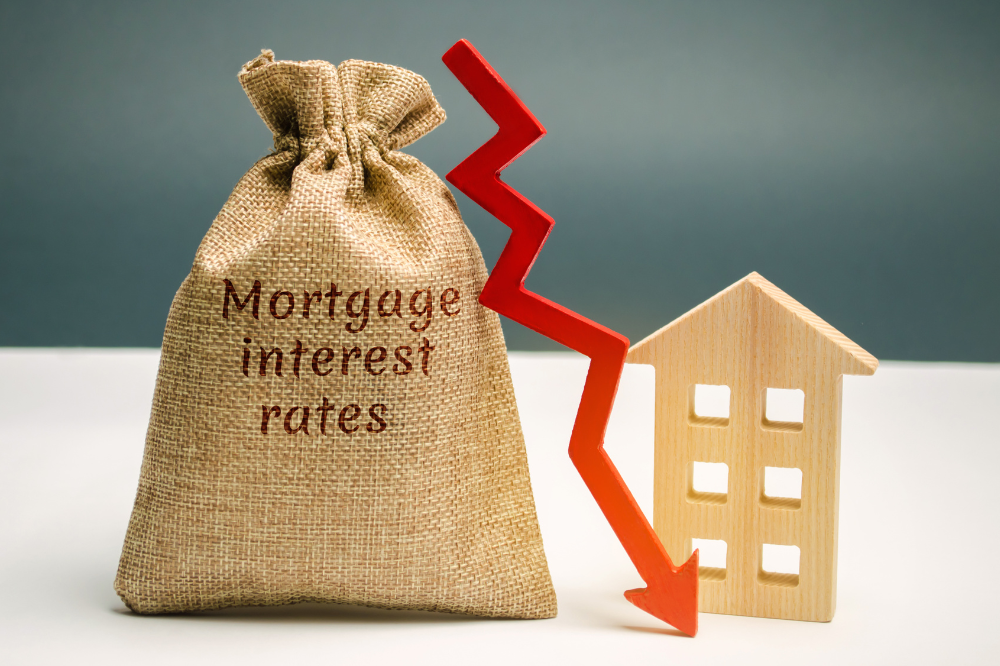Blog
News & Insights
.avif)
Why are Tracker Mortgages Becoming so Popular?
Tracker mortgages have gained significant traction in the UK housing market throughout 2025, with recent data showing a 67% surge in uptake compared to 2021.The appeal of these products stems from their flexible nature, offering interest rates that follow the Bank of England’s base rate, which has become especially attractive amidst ongoing economic uncertainty and fluctuating interest rates.

Reasons To Remortgage
Re-mortgaging can be for a number of reasons- some people think it is always about raising money, or comes with negative conetations, but it can be as simple as a rate change! Here we talk about why people do just this...

Are Mortgage Rates Coming Down?
Are mortgage rates coming down and what effects mortgage rates in the UK?
.avif)
Mortgages For Self-Employed Without Accounts
Self-employed individuals can secure a mortgage without formal accounts by providing tax returns, bank statements, or contracts. Larger deposits and guarantor or specialist lenders can also help. Working with a mortgage broker, like Bell Financial Solutions, can improve your chances and help find the best options.

What Mortgage Can I Get?
This is the most common question and conversation starter we are presented with from clients. Along with “what mortgage can I afford?” and “what can I borrow?”. And this question doesn’t always come from emails or calls into the office. This is what we are asked at networking events, in the pub or even in a doctor’s surgery.

How Are Mortgages Calculated
What do mortgage lenders take into account when they consider how to calcuate your monthly payment and therefore what factors into account how much you are going to pay.
%20(1000%20x%20666%20px).avif)
£5k Deposit Mortgage for First-Time Buyers
A £5K deposit mortgage allows first-time buyers to get on the property ladder with just a £5,000 deposit. While it reduces upfront costs, it may come with higher monthly payments and interest rates. Buyers need to meet eligibility criteria, including income and credit score checks.

How Does Remortgaging Work?
Remortgaging is when you look to move from one mortgage deal to another, either staying with your existing lender or moving to a new one. As the years go by, you don’t necessarily have to stay on the same mortgage as the one you initially took out, as your personal circumstances will change over time, giving you reasons to remortgage.

Divorce and Unequal Deposits: Your Rights in a Joint Mortgage
Buying a property together is one of the biggest financial decisions a couple can make. When relationships break down, the question of who owns what can quickly become complex, especially if one person put down a larger deposit than the other. Learn your rights in this blog.

How Does Divorce Affect My Mortgage?
Separation or divorce can complicate mortgage arrangements, especially if one partner stops paying. This guide explains what happens to your mortgage, how to protect your credit score, manage missed payments, and handle situations like negative equity in a shared property.

Do You Need Life Insurance for a Mortgage?
Here our adviser Rachel talks about the need for Life Insurance for some but how the commom myth of it being a necessary insurance in order to get a mortgage is not actually the case.

How Much is Private Health Insurance?
Private medical insurance in the UK is an investment that provides quicker access to medical care and tailored coverage. Here we talk about the benefits and how it is costed.

How Do Buy-To-Let Mortgages Work?
Buy-to-let mortgages help investors purchase rental properties. They require higher deposits and interest rates, and lenders assess affordability based on rental income. Key factors include stamp duty, rental yield, and tax obligations.
.avif)
7 Best Places to Live in Manchester
From trendy Ancoats to family-friendly Didsbury, Manchester offers a neighborhood for everyone. Whether you seek vibrant city life or a peaceful retreat, our guide highlights top areas to call home.
%20(2).avif)
RPI Ground Rents: Insights and Implications
RPI ground rents, linked to inflation, can lead to unpredictable and rising costs for homeowners. Common in long-term leases, these rents affect affordability, property values, and mortgage options. Despite recent reforms, existing leaseholders still face financial strain, and further policy changes are being discussed to offer more security.
%20(6).avif)
Doubling Ground Rents: A Growing Problem
Doubling ground rent clauses are leaving many leaseholders facing soaring costs and unsellable properties. While new leases are now protected by law, older agreements remain a problem. This post explains the risks, your options, and how Bell Financial Solutions can help.
%20(1).avif)
Ground Rent Explained
Thinking of buying a leasehold property? Don’t overlook ground rent and service charges, they can seriously affect your long-term costs, mortgage eligibility, and resale value. In this blog, we explain what ground rent is, why it matters, how it’s changing under new laws, and what to look out for in your lease. Whether you're buying, remortgaging, or extending your lease, understanding these charges is key to protecting your investment.

Can You Have Two Separate Mortgages on One Property?
Having two separate mortgages on one property, also known as a second charge mortgage, is common in the UK. However, the process isn’t always so simple, and there are eligibility criteria that must be met. To learn more about having two separate mortgages on one property and the reasons behind it, continue reading.
We’re all ears.
Let’s have a chat about what you need and how we can help.

Your property may be repossessed if you do not keep up repayments on your mortgage. The Financial Conduct Authority does not regulate some forms of Buy to Lets.
